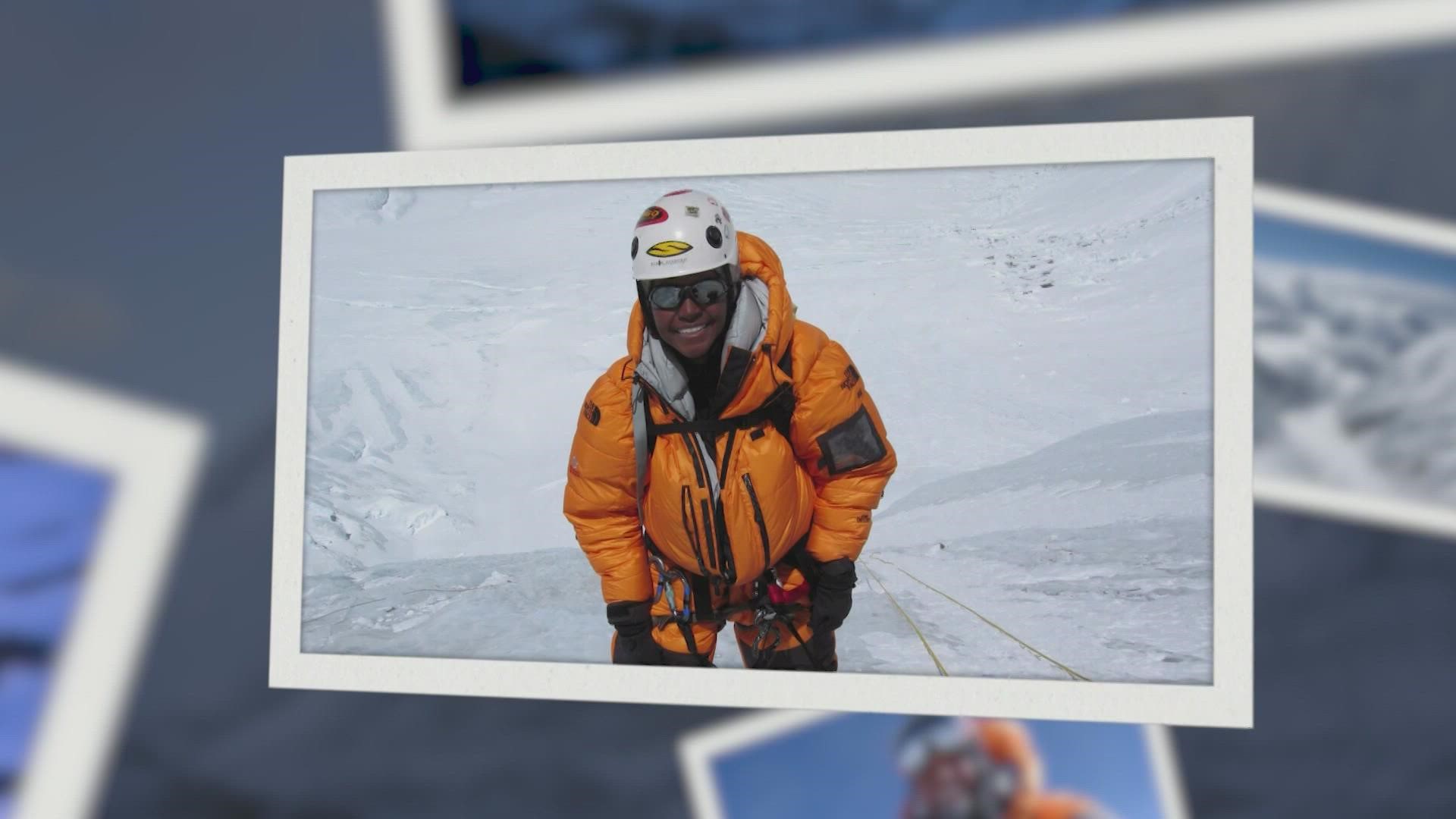SEATTLE — Locking in and taking the first step, that's how Sophia Danenberg approaches adventure sports like mountain climbing.
When Danenberg was getting started in the sport, she did not see people that looked like her.
"I mean, not just climbing, not skiing, not hiking, like nowhere,” Danenberg said.
Danenberg loves the outdoors so much. That's why she moved to Seattle, but just like everywhere else she's lived, she noticed a stark lack of diversity in outdoor recreation.
A report from the American Alpine Club shows Danenberg is right, few people of color are accessing the outdoors. The report found of the more than seven million climbers in the U.S., only 1% are black.
Take Mount Everest for example. Earth's highest mountain above sea level stands at more than 29,000 feet. Almost seven decades ago, the first confirmed climbers made it to the top. Since then, there have been more than 10,000 successful summits, but fewer than ten of those climbers have been black. Danenberg is one of them.
In 2006, Danenberg became the first African American to reach the summit of Mount Everest.
Diversity experts say the lack of diversity in outdoor recreation is another example of how systemic racism plays out in our society. Outdoor recreation has traditionally been a predominantly white space, and many adventure sports take money and time that not all people of color have had the luxury to invest in.
"The equipment is expensive. Permits can be expensive,” said Danenberg.
Danenberg says it cost her more than $34,000 when she climbed Mount Everest, and when she made history making it to the summit, it didn't even make the headlines of her hometown paper in Connecticut.
"The fact that my local newspaper in Hartford wasn't interested meant that, like, it didn't really get out,” said Danenberg.
Eventually, Danenberg's Everest expedition did receive more attention as she kept sharing details about the heart-pounding journey.
"The biggest challenge with Everest is the altitude,” said Danenberg. “I was by myself, so I hired what they called a personal Sherpa."
On the mountain, they were met with bad weather.
"We got trapped there in a storm and needed to dig our way out,” she said.
"On the night we were supposed to summit, we arrived and there was this huge storm,” said Danenberg. "I thought that that was it. I actually went to bed thinking we're going to wake up the next morning and head back down the mountain and go and that'd be it. But then the weather started to clear."
They decided to go for it.
"We got so far ahead of everybody that we couldn't see anyone else,” Danenberg said.
They found themselves alone at the top, savoring a successful summit.
Danenberg breaking barriers is something that caught the attention of Charlotte Guard, the program director at Northwest Avalanche Center.
"I think that backcountry recreation, wintertime recreation, has been this largely white-dominated space, and so it is something to be celebrated that it's diversifying, that more people like Sophia are paving the way for more people to get involved in lowering barriers to access because that's why it's a white-dominated space,” said Guard.
Northwest Avalanche Center has been forecasting mountain weather for the public since the late 70s. After the murder of George Floyd as leaders in the outdoor community, they realized they had work to do, including issuing a statement about their dedication to diversity, equity, and inclusion. Part of their mission is diversifying their board of directors, hiring and supporting a diverse workforce and amplifying diverse voices on their platforms.
"I think just recognizing that nonaction is action. In order to be a force for good, you have to be proactive,” said Guard.
"It is part of the reason why I talk about my Everest climb,” said Danenberg. "I realized maybe a decade or so ago that there were young climbers who were taking inspiration from what I did, and they were activists. They were pushing the industry. They were starting groups and organizations."
Right now, Danenberg says she is excited to see the Full Circle Everest Expediton, a group of ten climbers who will attempt, this spring, to become the first all-Black team to summit Mount Everest.
When it comes to outdoor recreation, Danenberg says, "I think the important thing is to just get out there and try it. It sounds cliché, but just to take the first step and see where it goes from there.”
Individuals like Danenberg and groups like the Northwest Avalanche Center are chipping away at the inequity by speaking out and changing the outdoor culture to open doors for everyone.

